- Home
- J. K. Rowling
Very Good Lives: The Fringe Benefits of Failure and the Importance of Imagination
Very Good Lives: The Fringe Benefits of Failure and the Importance of Imagination Read online
President Faust, members of the
Harvard Corporation and the
Board of Overseers, members of
the faculty, proud parents, and,
above all, graduates.
thank
you
The first thing I would like to
say is “thank you.” Not only has
Harvard given me an extraordi-
nary honor, but the weeks of
fear and nausea I have endured
at the thought of giving this com-
mencement address have made
me lose weight. A win-win sit-
uation! Now all I have to do is
take deep breaths, squint at the
red banners, and convince myself
that I am at the world’s largest
Gryffindor reunion.
Delivering a commencement address
is a great responsibility, or so I thought
until I cast my mind back to my
own graduation. The commencement
speaker that day was the distinguished
British philosopher Baroness Mary
Warnock. Reflecting on her speech has
helped me enormously in writing this one,
because it turns out that I can’t remember
a single word she said. This liberating
discovery enables me to proceed without
any fear that I might inadvertently
influence you to abandon promising
careers in business, the law, or politics
for the giddy delights of becoming a
gay wizard.
You see? If all you remember in
years to come is the “gay wizard”
joke, I’ve come out ahead of Baro-
ness Mary Warnock. Achievable
goals: the first step to self-
improvement.
Actually, I have racked my mind
and heart for what I ought to say to
you today. I have asked myself
what I wish I had known at
my own graduation, and what
important lessons I have learned in
the twenty-one years that have
expired between that day and this.
The
Importance
of
IMAgiNATiON
I have come up with two answers.
On this wonderful day when we are
gathered together to celebrate your
academic success, I have decided to talk
to you about the benefits of failure.
And as you stand on the threshold of
what is sometimes called “real life,”
I want to extol the crucial importance
of imagination.
UNEASY
BALANCE
These may seem quixotic or paradox-
ical choices, but please bear with me.
Looking back at the twenty-one-year-
old that I was at graduation is a slightly
uncomfortable experience for the forty-
two-year-old that she has become.
Half my lifetime ago, I was striking
an uneasy balance between the
ambition I had for myself and what
those closest to me expected of me.
personal
quirk
I was convinced that the only
thing I wanted to do, ever, was write
novels. However, my parents, both
of whom came from impoverished
backgrounds and neither of whom
had been to college, took the view
that my overactive imagination was
an amusing personal quirk that would
never pay a mortgage or secure a
pension. I know that the irony strikes
with the force of a cartoon anvil
now.
So they hoped that I would take a
vocational degree; I wanted to study
English Literature. A compromise was
reached that in retrospect satisfied
nobody, and I went up to study
Modern Languages. Hardly had my
parents’ car rounded the corner at
the end of the road than I ditched
German and scuttled off down the
Classics corridor.
I cannot remember telling my
parents that I was studying Classics;
they might well have found out
for the first time on graduation day.
Of all the subjects on this planet, I
think they would have been hard
put to name one less useful than
Greek mythology when it came to
securing the keys to an executive
bathroom.
I would like to make it clear,
in parenthesis, that I do not
blame my parents for their
point of view. There is an
expiration date on blaming
your parents for steering you
in the wrong direction; the
moment you are old enough to
take the wheel, responsibility
lies with you. What is more,
I cannot criticize my parents
for hoping that I would never
experience poverty. They had
been poor themselves, and I
have since been poor, and I
quite agree with them that it is
not an ennobling experience.
Poverty entails fear, and stress,
and sometimes depression; it
means a thousand petty humil-
iations and hardships. Climb-
ing out of poverty by your
own efforts—that is something
on which to pride yourself,
but poverty itself is roman-
ticized only by fools.
What I feared most for myself at
your age was not poverty but failure.
At your age, in spite of a distinct
lack of motivation at university,
where I had spent far too long in the
coffee bar writing stories and far too
little time at lectures, I had a knack
for passing examinations, and that,
for years, had been the measure of
success in my life and that of my peers.
I am not dull enough to suppose
that because you are young, gift-
ed, and well-educated, you have
never known hardship or heartache.
Talent and intelligence never yet
inoculated anyone against the ca-
price of the Fates, and I do not for
a moment suppose that everyone
here has enjoyed an existence of un-
ruffled privilege and contentment.
So
high
have
you
already
flown
However, the fact that you are
graduating from Harvard suggests
that you are not very well acquainted
with failure. You might be driven
by a fear of failure quite as much as
a desire for success. Indeed, your
conception of failure might not be
too far removed from the average
person’s idea of success, so high
have you already flown.
I was the

 Harry Potter and the Philosophers Stone
Harry Potter and the Philosophers Stone Harry Potter and the Chamber of Secrets
Harry Potter and the Chamber of Secrets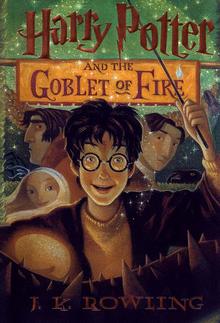 Harry Potter and the Goblet of Fire
Harry Potter and the Goblet of Fire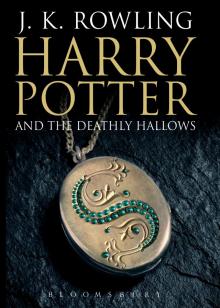 Harry Potter and the Deathly Hallows
Harry Potter and the Deathly Hallows Harry Potter and the Order of the Phoenix
Harry Potter and the Order of the Phoenix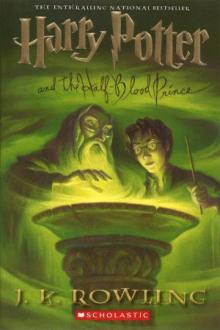 Harry Potter and the Half-Blood Prince
Harry Potter and the Half-Blood Prince Harry Potter and the Prisoner of Azkaban
Harry Potter and the Prisoner of Azkaban Fantastic Beasts and Where to Find Them
Fantastic Beasts and Where to Find Them Short Stories from Hogwarts of Heroism, Hardship and Dangerous Hobbies
Short Stories from Hogwarts of Heroism, Hardship and Dangerous Hobbies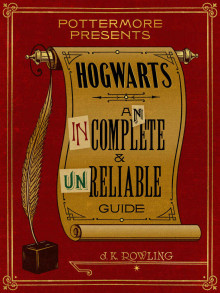 Hogwarts: An Incomplete and Unreliable Guide
Hogwarts: An Incomplete and Unreliable Guide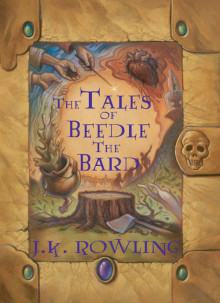 The Tales of Beedle the Bard
The Tales of Beedle the Bard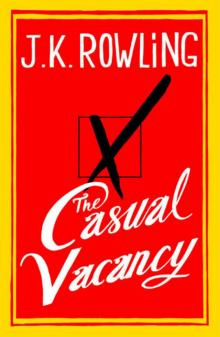 The Casual Vacancy
The Casual Vacancy Harry Potter and the Cursed Child
Harry Potter and the Cursed Child Short Stories from Hogwarts of Power, Politics and Pesky Poltergeists
Short Stories from Hogwarts of Power, Politics and Pesky Poltergeists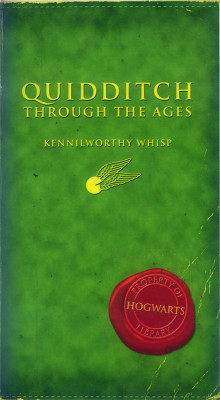 Quidditch Through the Ages
Quidditch Through the Ages The Ickabog
The Ickabog![Fantastic Beasts, The Crimes of Grindelwald [UK] Read online](http://i1.bookreadfree.com/i/03/19/fantastic_beasts_the_crimes_of_grindelwald_uk_preview.jpg) Fantastic Beasts, The Crimes of Grindelwald [UK]
Fantastic Beasts, The Crimes of Grindelwald [UK] Harry Potter and the Cursed Child: Parts One and Two
Harry Potter and the Cursed Child: Parts One and Two The Prisoner of Azkaban
The Prisoner of Azkaban Fantastic Beasts: The Crimes of Grindelwald
Fantastic Beasts: The Crimes of Grindelwald The Hogwarts Library Collection
The Hogwarts Library Collection Short Stories from Hogwarts of Heroism, Hardship and Dangerous Hobbies (Kindle Single) (Pottermore Presents)
Short Stories from Hogwarts of Heroism, Hardship and Dangerous Hobbies (Kindle Single) (Pottermore Presents)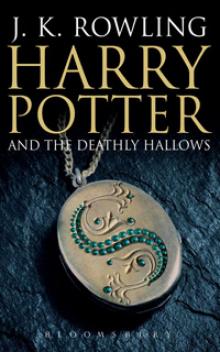 Harry Potter and the Deathly Hallows hp-7
Harry Potter and the Deathly Hallows hp-7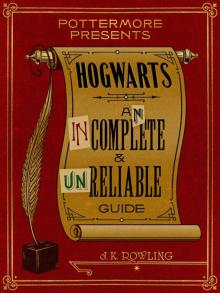 Hogwarts: An Incomplete and Unreliable Guide (Kindle Single) (Pottermore Presents)
Hogwarts: An Incomplete and Unreliable Guide (Kindle Single) (Pottermore Presents)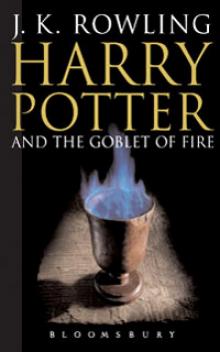 Harry Potter and the Goblet of Fire hp-4
Harry Potter and the Goblet of Fire hp-4 The Christmas Pig
The Christmas Pig Harry Potter and the Sorcerer's Stone
Harry Potter and the Sorcerer's Stone The Order of the Phoenix
The Order of the Phoenix Harry Potter and the Prisoner of Azkaban hp-3
Harry Potter and the Prisoner of Azkaban hp-3 Harry Potter and the Chamber of Secrets hp-2
Harry Potter and the Chamber of Secrets hp-2 HP 3 - Harry Potter and the Prisoner of Azkaban
HP 3 - Harry Potter and the Prisoner of Azkaban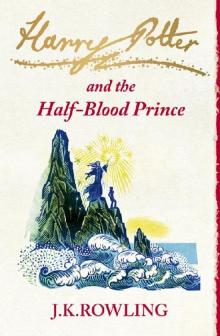 The Half-Blood Prince
The Half-Blood Prince The Hogwarts Collection
The Hogwarts Collection Tales of Beedle the Bard
Tales of Beedle the Bard The Goblet of Fire
The Goblet of Fire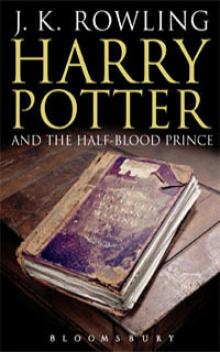 Harry Potter and the Half-Blood Prince hp-6
Harry Potter and the Half-Blood Prince hp-6 Short Stories from Hogwarts of Power, Politics and Pesky Poltergeists (Kindle Single) (Pottermore Presents)
Short Stories from Hogwarts of Power, Politics and Pesky Poltergeists (Kindle Single) (Pottermore Presents)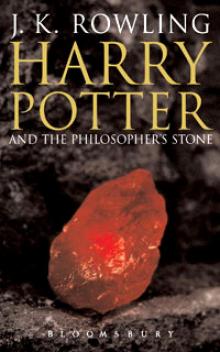 Harry Potter and the Sorcerer's Stone hp-1
Harry Potter and the Sorcerer's Stone hp-1